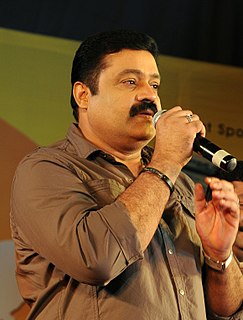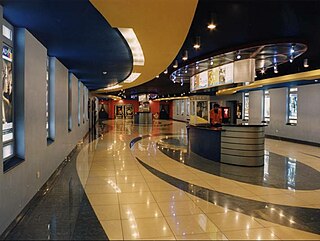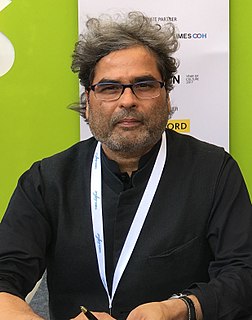
The cinema of Japan has a history that spans more than 100 years. Japan has one of the oldest and largest film industries in the world; as of 2010, it was the fourth largest by number of feature films produced. In 2011 Japan produced 411 feature films that earned 54.9% of a box office total of US$2.338 billion. Movies have been produced in Japan since 1897, when the first foreign cameramen arrived. In a Sight & Sound list of the best films produced in Asia, Japanese works made up eight of the top 12, with Tokyo Story (1953) ranked number one. Japan has won the Academy Award for the Best Foreign Language Film four times, more than any other Asian country.

The Dadasaheb Phalke Award is India's highest award in cinema. It is presented annually at the National Film Awards ceremony by the Directorate of Film Festivals, an organisation set up by the Ministry of Information and Broadcasting. The recipient is honoured for their "outstanding contribution to the growth and development of Indian cinema" and is selected by a committee consisting of eminent personalities from the Indian film industry. As of 2016, the award comprises a Swarna Kamal medallion, a shawl, and a cash prize of ₹1,000,000 (US$14,000).

The film industry or motion picture industry, comprises the technological and commercial institutions of filmmaking, i.e., film production companies, film studios, cinematography, animation, film production, screenwriting, pre-production, post production, film festivals, distribution and actors, film directors and other film crew personnel. Though the expense involved in making films almost immediately led film production to concentrate under the auspices of standing production companies, advances in affordable film making equipment, and expansion of opportunities to acquire investment capital from outside the film industry itself, have allowed independent film production to evolve.

Suresh Gopinathan, commonly known as Suresh Gopi, is an Indian film actor, politician, and singer who has starred in over 200 Malayalam films. He currently serves as a Member of Parliament (M.P.) in the Rajya Sabha, the upper house of the Indian Parliament.

Venkatesh Daggubati is an Indian film actor known for his works predominantly in Telugu cinema. In a career spanning 30 years, he starred in 72 feature films. He has played a variety of roles in Telugu cinema and in a couple of Bollywood films. He has received seven state Nandi Awards and six Filmfare Awards.
Kevin Brownlow is a British film historian, television documentary-maker, filmmaker, author, and film editor. Brownlow is best known for his work documenting the history of the silent era. Brownlow became interested in silent film at the age of eleven. This interest grew into a career spent documenting and restoring film. He has rescued many silent films and their history. His initiative in interviewing many largely forgotten, elderly film pioneers in the 1960s and 1970s preserved a legacy of early mass-entertainment cinema. Brownlow received an Academy Honorary Award at the 2nd Annual Governors Awards given by the Academy of Motion Picture Arts and Sciences on 13 November 2010. This was the first occasion on which an Academy Honorary Award was given to a film preservationist.

Telugu cinema, also known by its sobriquet Tollywood, is the segment of Indian cinema dedicated to the production of motion pictures in the Telugu language, based in Film Nagar, a neighborhood of Hyderabad, Telangana. Since 1909, film maker Raghupathi Venkaiah was involved in producing short films and travelling to different regions in Asia to promote film work. In 1921, he produced the first Telugu silent film, Bhishma Pratigna. He is cited as the father of Telugu cinema. Tollywood is the third largest Film industry in India after bollywood and kollywood.
The National Film Award for Best Supporting Actor, officially known as the Rajat Kamal Award for the Best Supporting Actor, is an honour presented annually at India's National Film Awards ceremony by the Directorate of Film Festivals (DFF), an organisation set up by the Indian Ministry of Information and Broadcasting. A national panel appointed annually by the DFF selects the actor who has given the best performance in a supporting role within Indian cinema. The award is presented by the President of India at a ceremony held in New Delhi.

Koduri Srisaila Sri Rajamouli, known professionally as S. S. Rajamouli is an Indian film director and screenwriter, known for his works primarily in Telugu cinema. He is known for directing high fantasy works such as Magadheera (2009), Eega (2012), the two part Baahubali: The Beginning (2015) and Baahubali 2: The Conclusion (2017). The Baahubali franchise has achieved the highest grossing Indian multilingual film franchise of all time globally, with a box office of approximately ₹1,900 crore (US$260 million). The first edition, Baahubali: The Beginning was nominated for Saturn Award for Best Fantasy Film, while the second edition, Baahubali 2: The Conclusion received the Saturn Award for Best International Film by the American Academy of Science Fiction, Fantasy and Horror Films. The second edition, garnered the Australian Telstra People's Choice Award at the 2017 Indian Film Festival of Melbourne.
Ken Jacobs is an American experimental filmmaker. He is the director of Tom, Tom, the Piper's Son, which was admitted to the National Film Registry in 2007. His Star Spangled to Death is a nearly seven-hour film consisting largely of found footage.

Baradwaj Rangan is an Indian film critic, writer, and formerly the deputy editor of The Hindu. He later became a senior editor of Film Companion. Rangan won the National Film Award for Best Film Critic in 2006. Before joining The Hindu, Rangan wrote for The New Indian Express. He has also authored two books, worked as a dialogue writer for the unreleased film Kadhal 2 Kalyanam, and is a teacher at the Asian College of Journalism, Chennai.

Kalidas is a 1931 Indian Tamil-language biographical film directed by H. M. Reddy and produced by Ardeshir Irani. It is notable for being the first Tamil language sound film, and the first sound film to be made in South India. It was based on the life of the Sanskrit poet Kālidāsa; it featured P. G. Venkatesan in the title role and T. P. Rajalakshmi as the female lead, with L. V. Prasad, Thevaram Rajambal, T. Susheela Devi, J. Sushila, and M. S. Santhanalakshmi in supporting roles.
G. Dhananjayan is an Indian film producer, Two Times National Award Winner, Columnist, Author of four books, Founder-Dean of BOFTA Film Institute. He was instrumental in producing a number of films in Tamil, Telugu, Malayalam and Hindi languages.

Gujarati cinema, informally referred to as Dhollywood or Gollywood, is the Gujarati language film industry. It is one of the major regional and vernacular film industries of the cinema of India, having produced more than one thousand films since its inception. During the silent film era, many individuals in the industry were Gujaratis. The language-associated industry dates back to 1932, when the first Gujarati talkie, Narsinh Mehta, was released. Until the independence of India in 1947, only twelve Gujarati films were produced. There was a spurt in film production in the 1940s focused on saint, sati or dacoit stories as well as mythology and folktales. In the 1950s–1960s, the trend continued with the addition of films on literary works. In the 1970s, the Government of Gujarat announced a tax exemption and subsidies which resulted in an increase in the number of films, but the quality declined.

Vishal Bhardwaj is an Indian film director, screenwriter, producer, music composer and playback singer. He is known for his work in Hindi cinema, and is the recipient of a Filmfare Award and seven National Film Awards in four categories.

Madhusudhanan is an Indian film maker and artist, a coastal district in Kerala. Started drawing at a very young age. Studied Painting at Fine Arts College, Thiruvananthapuram, Kerala, and Print Making at the Faculty of Fine Arts, M.S. University, Vadodara, Gujarat. His artistic practice flows seamlessly across various mediums in art and cinema, including video art and narrative feature film.His work confronts India’s film history, her colonial period and contemporary war politics. He is deeply concerned with war, colonization, and man-made borders.Marxism and Buddhism have been decisive influences on Madhusudhanan’s art.

Paresh Mokashi is an Indian filmmaker, producer, actor and Theatre director-producer; working predominantly in Marathi cinema and Marathi theatre. He started working as a backstage worker for theatre and did few minor roles for plays as well as films. Mokashi made his directorial debut for theatre with the Marathi play, Sangeet Debuchya Mulee in 1999. He continued to work for theatre and made his directorial debut for cinema with the 2009 Marathi feature film, Harishchandrachi Factory. The film depicts the making of India's first full-length feature film, Raja Harishchandra (1913), made by Dadasaheb Phalke. The film was acclaimed critically and won several awards. It was also selected as India's official entry to 82nd Academy Awards in the Best Foreign Language Film category.

Sessue Hayakawa: Silent Cinema and Transnational Stardom is a biography of actor Sessue Hayakawa, written by Daisuke Miyao, assistant professor of film at the University of Oregon, and published by Duke University Press. It won the 2007 Book Award in History from the Association of Asian American Studies and the John Hope Franklin Book Award from Duke University (2007).















